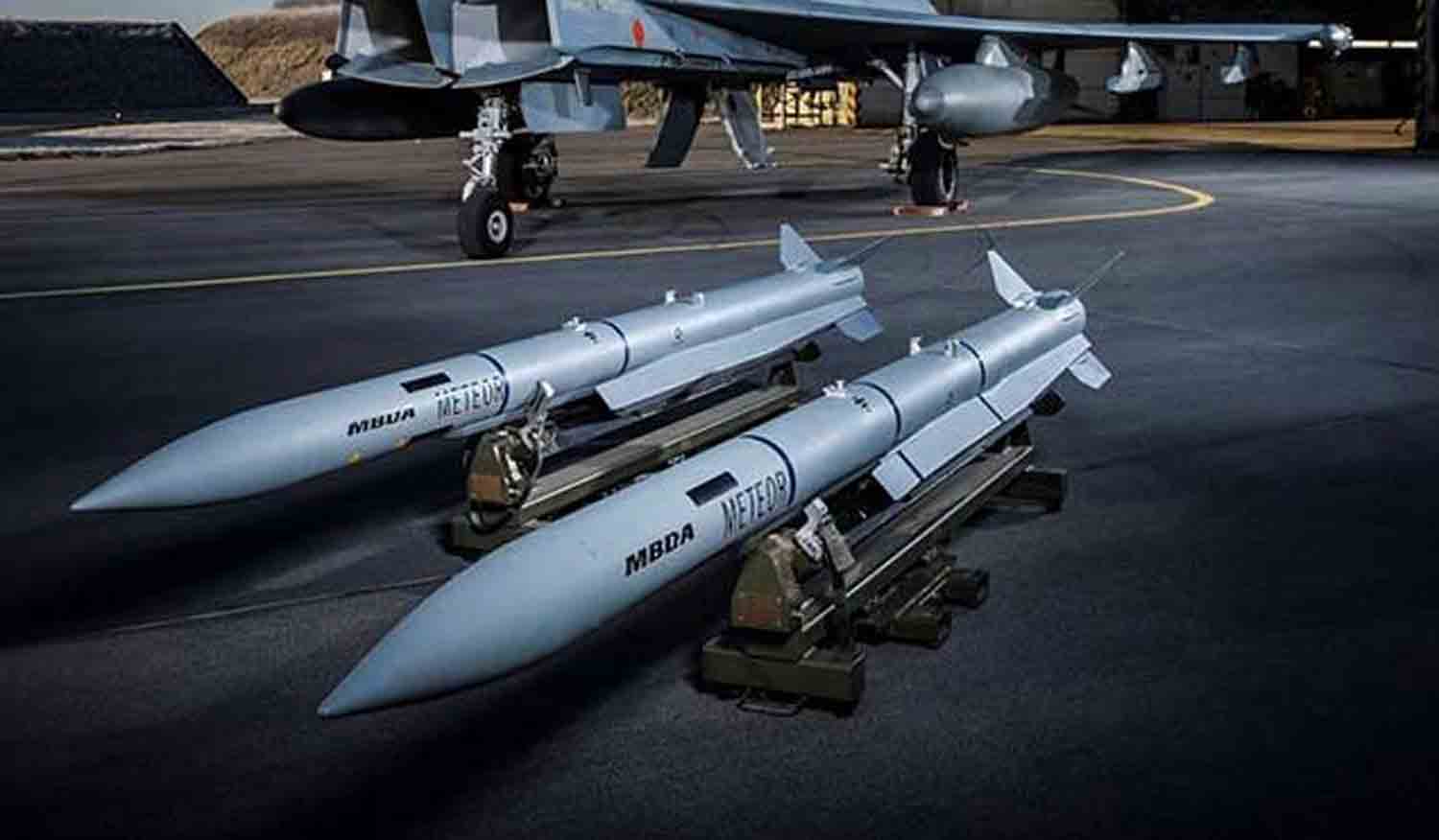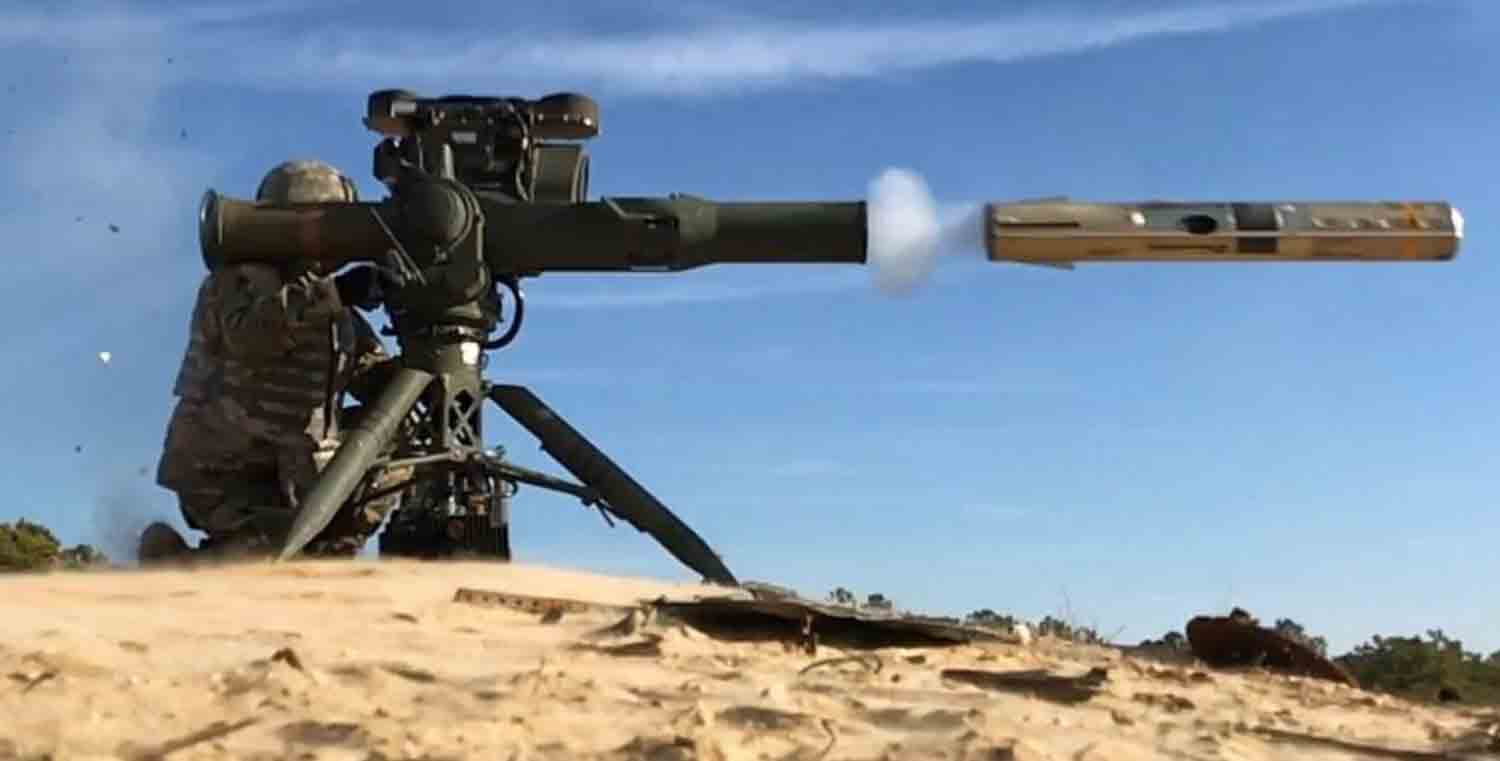Turkey is poised to enhance its air force capabilities through the procurement of advanced weaponry for its forthcoming Eurofighter Typhoon jets. Recent international reports indicate that Germany‘s support is a pivotal element in finalizing this agreement. In the context of the Meteor missile’s development, three significant contributors— the United Kingdom, Spain, and Italy— maintain robust relationships with Ankara and do not foresee any barriers to the transaction. Germany has recently relaxed its arms export restrictions to Turkey, thereby facilitating this important deal.
France seems to have implicitly endorsed the potential transfer of Meteor missiles to the Turkish Air Force, a move that has sparked considerable concern in Athens. The Greek government has expressed serious apprehensions regarding this development.
On January 29, Greek Defense Minister Nikos Dendias, after discussions with Prime Minister Kyriakos Mitsotakis and Foreign Minister Giorgos Gerapetritis, convened with French Ambassador to Athens, Laurence Auer. The main aim of this meeting was to obtain official clarification on France’s position concerning the deal.
“Following my discussions with Prime Minister Kyriakos Mitsotakis and Foreign Minister Giorgos Gerapetritis, I met today with the French Ambassador, Ms. Laurence Auer, at the Ministry of National Defense to formally inquire about the potential sale of Meteor missiles to Turkey,” Dendias shared on the social media platform X.
Greece has made it clear that it strongly opposes the potential sale of Meteor air-to-air missiles to Turkey, asserting that such a move undermines the enduring strategic partnership between Athens and Paris.
Dendias highlighted the defense agreement established between France and Greece in 2021, which includes provisions for regular discussions on security and defense issues of shared concern.
Earlier this month, Greek officials had already expressed their disapproval of the proposed deal and attempted to prevent it. Initially, France appeared firm in its decision to deny the missile sale to Turkey; however, recent reports indicate that pressure from the United Kingdom has influenced Paris to reconsider its position.
This recent development underscores the complex geopolitical dynamics surrounding advanced arms transactions and raises important questions about the future of regional alliances in light of Turkey’s expanding military capabilities.
Greece’s opposition to the missile sale is rooted in a mix of historical animosities, geopolitical factors, and military operational issues. The rivalry between the two nations is characterized by longstanding territorial disputes in the Aegean Sea, conflicting claims over airspace and maritime boundaries, as well as the unresolved situation in Cyprus.
These ongoing tensions have intermittently resulted in military clashes and close calls, deepening the entrenched mistrust between Athens and Ankara. Greece perceives any enhancement of Turkey’s aerial combat capabilities as a direct threat to its national security and the strategic equilibrium in the region.
From a geopolitical standpoint, Greece interprets Turkey’s military expansion as part of a larger strategy aimed at establishing dominance in the Eastern Mediterranean. Ankara’s assertive actions, such as energy exploration in contested waters, aggressive maneuvers in the Aegean, and military interventions in Libya and Syria, have heightened Greek apprehensions.
The potential acquisition of Meteor missiles would considerably bolster Turkey’s air superiority, disrupting the fragile balance between the two NATO partners. Greece heavily depends on its advanced air force, particularly its fleet of Rafale fighter jets armed with Meteor missiles, to sustain its deterrent posture. Granting Turkey access to similar capabilities would weaken this strategic edge and encourage Ankara in regional conflicts.
From a military-operational perspective, the Meteor missile represents a significant advancement in beyond-visual-range (BVR) air combat. Its long-range capabilities, sophisticated guidance system, and high probability of kill allow aircraft to engage enemy fighters before they enter their own missile engagement zones.
Greece has made substantial investments in these missiles specifically to counter Turkey’s expanding air force, especially in light of its planned acquisition of F-16 Block 70 fighters. Should Turkey obtain Meteor missiles for its future Eurofighter Typhoons or any other platform, it would severely diminish Greece’s capacity to maintain aerial deterrence and compel Athens to reassess its entire air defense strategy.
Greece is not only concerned about the immediate tactical ramifications of such a sale but is also apprehensive about its wider strategic implications. The nation fears that providing Turkey with any military edge could embolden a more assertive approach in territorial disputes, thereby heightening the risk of aerial confrontations or even outright conflict.
Moreover, the potential for Turkey to incorporate these weapons into its domestic fighter jet initiatives or to disseminate sensitive information to non-NATO allies raises alarms regarding technology proliferation and possible alterations in alliance relationships.
In light of these considerations, Greece is actively seeking support from its European allies, especially France and the UK, to prevent the sale. It contends that this transaction would not only jeopardize Greek security but also destabilize the Eastern Mediterranean region and undermine NATO’s internal unity.
The MBDA Meteor missile stands out as one of the most sophisticated beyond-visual-range air-to-air missiles (BVRAAM) currently available, engineered to transform aerial combat by providing unparalleled engagement capabilities against high-speed, agile targets at extensive ranges.
Primarily developed for European fighter jets, the Meteor represents a significant advancement in air superiority, featuring a distinctive propulsion system, cutting-edge seeker technology, and integrated engagement capabilities, distinguishing it from older systems such as the AIM-120 AMRAAM.
The Meteor missile’s primary advantage lies in its throttleable ducted-rocket ramjet propulsion system, which enables it to sustain high energy levels throughout its flight profile. In contrast to conventional solid-fuel rocket motors that quickly deplete and leave missiles to glide towards their targets, the Meteor can dynamically modulate its thrust.
This capability significantly enhances its no-escape zone, allowing it to pursue and neutralize maneuvering targets at distances far exceeding those of standard air-to-air missiles. The missile is believed to have an effective range exceeding 100 miles (160 km), although precise details remain classified.
Equipped with an advanced active radar seeker, the Meteor is designed to engage enemy aircraft even in complex electronic warfare scenarios. This cutting-edge seeker technology, along with mid-course updates from the launch platform or third-party sensors through a two-way datalink, enables the missile to adapt to target maneuvers, countermeasures, and changes in the operational environment in real time.
As a result, it exhibits a high degree of resistance to countermeasures such as electronic jamming or evasive maneuvers, providing a significant edge in contested airspace.
The missile features a high-fragmentation blast warhead, specifically engineered for maximum effectiveness against enemy fighters, bombers, and even cruise missiles. It employs a sophisticated proximity fuse to ensure detonation at the most advantageous moment during the engagement, thereby maximizing damage to the target while minimizing the likelihood of a miss.
The combination of its warhead design and high-speed kinetic energy upon impact positions the Meteor as one of the most lethal air-to-air weapons available.
The integration of the Meteor has been a priority for various European and allied air forces, with platforms such as the Eurofighter Typhoon, Dassault Rafale, and Saab Gripen E incorporating it into their operational capabilities.
The F-35 is anticipated to incorporate Meteor integration in the future, which will significantly enhance its long-range engagement capabilities beyond the current limits of the AIM-120D. The missile is already operational with frontline units, greatly augmenting the air combat effectiveness of the nations that utilize it.
Details regarding variants of the Meteor are closely guarded, but there are signs that MBDA is working on enhancements and potential derivatives to improve versatility across various fighter platforms and engagement scenarios. These developments may include software upgrades, seeker enhancements, or even modifications for extended range, further advancing air combat superiority.
The Meteor signifies a transformative advancement in air-to-air missile technology, offering Western-aligned air forces a vital advantage in beyond-visual-range confrontations.
Its capacity to maintain high energy throughout its trajectory, adapt to changing combat conditions, and counter contemporary electronic warfare threats establishes it as a pivotal weapon in today’s air combat environment. As aerial threats evolve and adversary capabilities progress, the Meteor ensures that the aircraft equipped with it remain leaders in air dominance.
Discover more from Defence Talks | Defense News Hub, Military Updates, Security Insights
Subscribe to get the latest posts sent to your email.





